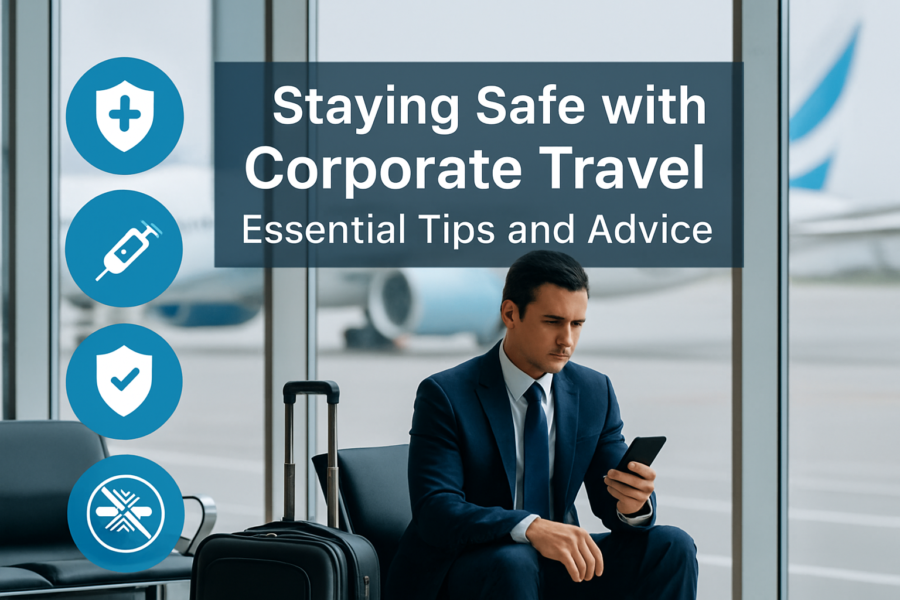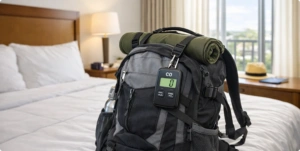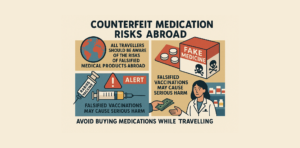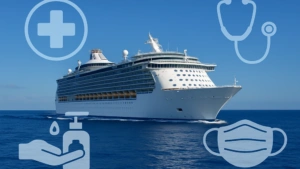Corporate travel is a critical part of modern business, allowing professionals to connect with clients, attend conferences and expand their global presence. However, with the increasing complexities of international travel, it’s crucial to stay informed and prepared to ensure your health and safety. Here is some comprehensive advice on vaccinations, health screenings and general travel safety tips to help you navigate the world of corporate travel securely and efficiently.
Company Duty of care
Your company or organization has a duty of care to ensure your health, safety and security when travelling. ISO 31030 was launched in 2021. It applies to commercial, governmental, educational organisations as well as not-for-profit and charity organisations and addresses travel risk management. Your employer should have used its framework tool to produce and implement a plan that helps manage the risks of your travel.
Country risk profile.
Every country will have a different risk profile. Risks include medical emergencies (road traffic accidents), health incidents including mental health, disease, outbreaks and epidemics, natural disasters, civil unrest, conflict, crime, security and terrorism.
Your Individual health risk in country will depend on any pre-existing medical conditions and the level of risk from Infectious diseases, quality of medical care, access to prescription medication and medical evacuation. It is extremely important that you know what medical support and emergency assistance your company have provided for you.
Personal Health
Evaluate Your Health
As the traveller you have a responsibility to manage and assess your own health needs before embarking on your business trip. It is essential to consult with your healthcare provider if you have any chronic medical conditions including heart problems, diabetes, epilepsy or asthma to discuss potential risks, necessary precautions or medical management to ensure your condition remains stable whilst away.
Seek specialist travel health advice
It is important to visit a travel health clinic for a pre- travel health consultation at least 6- 8 weeks prior to travel . At Masta you are provided with a full individualised travel health brief that will include the travel health risks relating to you and the country you are visiting. There are a number of vaccines available to protect against high risk infections including Chikungunya, Japanese encephalitis, Rabies and Hepatitis B that may be recommended depending on your itinerary. Advice will also include malaria risk and medical kits.
Travel Insurance
It is vital that travel insurance is in place and that it covers medical emergencies, trip cancellation and theft. You must always inform your insurer of any existing medical conditions, including early pregnancy. Ensure you have access to your policy whilst you are away.
Stay Informed
Keep updated on local health advisories and safety information for the regions you are visiting. Register with your embassy if possible to receive timely updates and assistance if needed.
Know Your Limits
Business trips often involve tight schedules, stressful and demanding environments. If you are not accustomed to long flights or high-stress situations, gradually build up your travel experience. Start with shorter trips to gauge your ability to handle the physical and mental challenges of corporate travel.
Air travel – risks
Jet lag
Travelling through different time zones causes a disruption to your natural body clock. Symptoms of jet lag include tiredness, headache, disorientation, irritability, confusion and appetite loss. To reduce symptoms, get plenty of rest prior to travel, take regular naps on the flight and expose yourself to natural sunlight on arrival at your destination. Avoiding alcohol and drinking plenty of water to remain hydrated will also help with symptoms of jet lag.
Venous thromboembolism (VTE)
VTE is a medical term for a clot that forms in the in a vein. DVT (deep vein thrombosis) usually occurs in the leg and PE pulmonary embolism is a clot in the lung. Travel for longer than 4 hours especially on a long flight increases the risk of VTE due to long periods of immobility. Risk factors include older age, obesity, pregnancy, history of DVT and combined contraceptive pill. To reduce the risk, it is important to stay hydrated, keep stretching, move around the cabin and exercise calf and foot muscles. You may wish to consult a doctor or pharmacist about the use of compression socks if you are at an increased risk.
Health, safety & security
Emergency Medication
Ensure you travel with a first-aid kit with essentials such as bandages, antiseptics, pain relievers, and any personal medications. Consult with your healthcare provider about carrying emergency antibiotics. The risk of counterfeit medication abroad is high. Common infections like Traveller’s diarrhoea can be severe and may need treatment with antibiotics to resolve.
Protect Your Belongings
Always keep a close eye on your personal possessions. Avoid carrying items of sentimental value and refrain from displaying personal wealth. Use hotel safes to store valuable items and consider wearing a money belt.
Nightlife Safety
If your business trip involves socialising after hours, choose reputable venues and stay vigilant. Always watch your belongings, especially your drinks. Alcohol and Ethanol poisoning is not uncommon and can cause death. If in doubt, get a fresh drink. and avoid cheap and free alcohol. Avoid travelling alone and use authorised taxis when possible.
Stay Hydrated and Eat Safely
To reduce the risk of food and waterborne illnesses, drink plenty of bottled or purified water to remain hydrated and eat hot freshly cooked meals. Avoid salads, raw or undercooked meat, fish and shellfish. Be cautious about where and what you eat. Poor food hygiene standards increase risk of traveller’s diarrhoea.
Prevent Mosquito Bites
Mosquito- borne diseases are prevalent in many countries. These include Malaria, Dengue, Chikungunya and Zika virus. To reduce mosquito bites, always wear long loose clothing and use an insect repellent on exposed skin. Reapply frequently and consider a clothing treatment (permethrin) if particularly vulnerable. Sleep under mosquito nets when necessary.
For further personalised advice, visit your nearest Masta clinic today.





